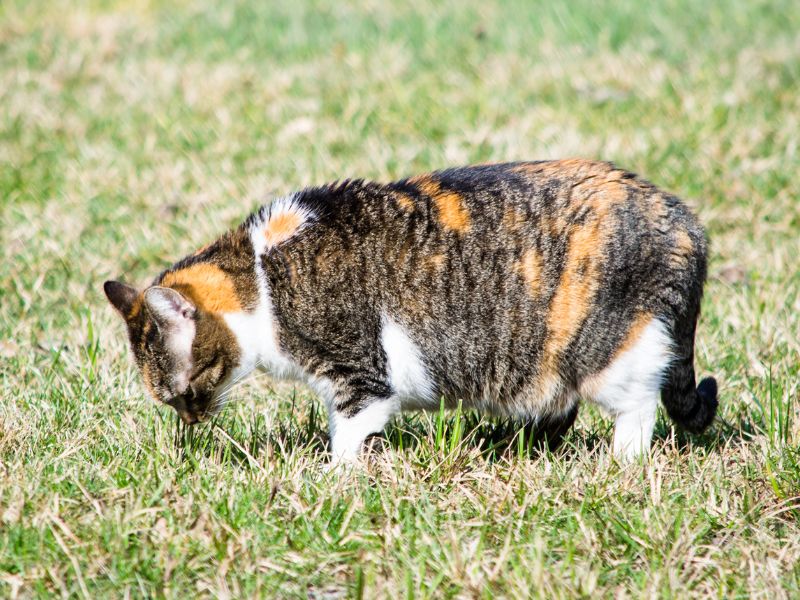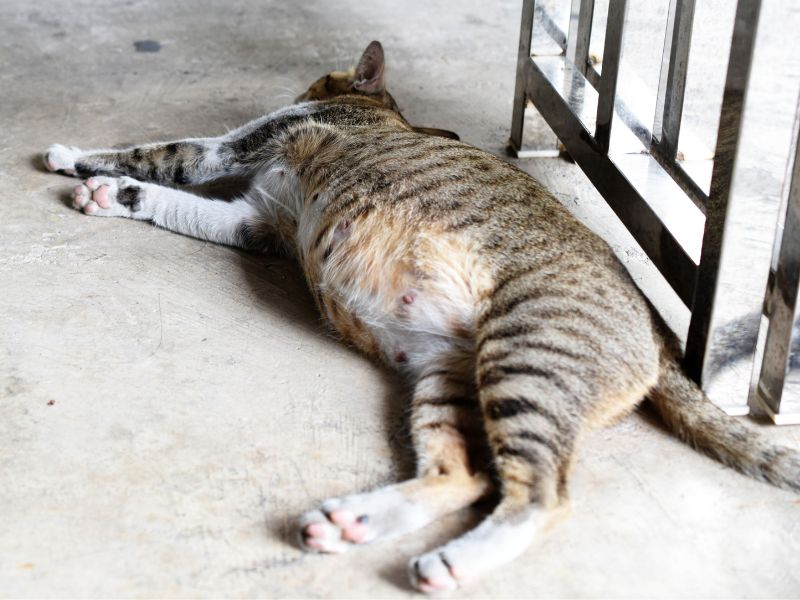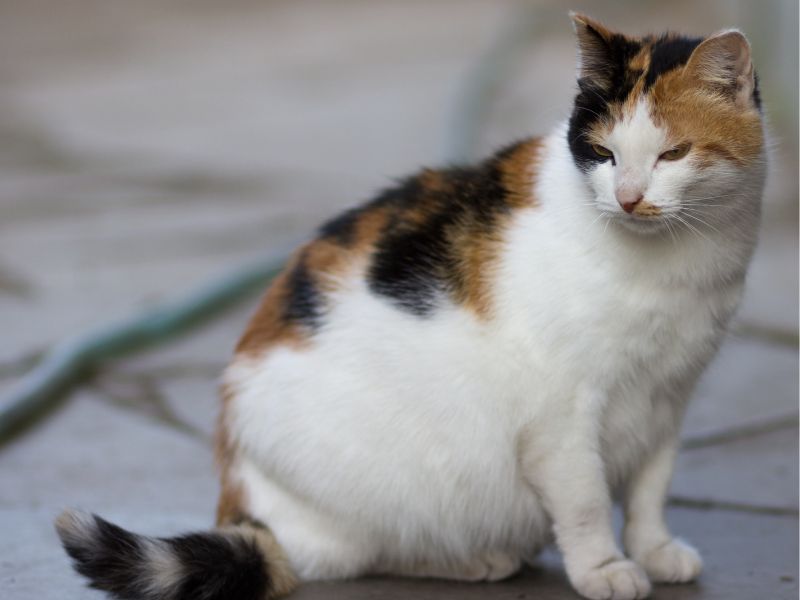How to Tell if Your Cat is Pregnant
Cats are known for their mysterious ways and independent personalities, which can make it challenging to know if they’re pregnant. However, if you’re a cat owner, it’s essential to be aware of the signs that your feline friend might be expecting. Knowing if your cat is pregnant can help you prepare for the arrival of her kittens and ensure that she receives proper care during this crucial time. In this article, we’ll take a closer look at the various signs that your cat might be pregnant, including physical symptoms and behavioral changes. From changes in appetite and nesting behaviors to visible physical changes like enlarged nipples and a swollen belly, we’ll cover everything you need to know to identify if your cat is pregnant. So if you’re curious about whether your furry friend is expecting, keep reading to learn how to tell if your cat is pregnant.
Physical Signs of Pregnancy in Cats
One of the most obvious signs that your cat might be pregnant is a visible change in her physical appearance. As early as two weeks into her pregnancy, you may notice a slight swelling in her belly, which will gradually become more pronounced as her pregnancy progresses. Her nipples may also become enlarged and pink, which is a sign that her body is preparing to nurse her kittens.
Another physical sign of pregnancy in cats is a change in their weight. As your cat’s pregnancy progresses, she will likely gain weight due to the growing kittens in her womb. However, it’s essential to note that not all pregnant cats will gain weight at the same rate, and some may not put on much weight until later in their pregnancy.
Finally, you may also notice a change in your cat’s behavior during pregnancy. She may become more affectionate and seek out more attention from you, or she may become more vocal and meow more frequently than usual. Additionally, she may start to groom herself more frequently, which is a sign that she is preparing for the arrival of her kittens.
Behavioral Changes in Pregnant Cats
In addition to physical changes, pregnant cats may also exhibit a variety of behavioral changes that can help you identify if she is pregnant. One of the most common behavioral changes in a pregnant cat is nesting behavior. As her pregnancy progresses, she may start to seek out a quiet, secluded place where she can give birth to her kittens. This may involve her rearranging bedding, blankets, or other soft materials to create a cozy nest for her and her kittens.
Another behavioral change that you may notice in your pregnant cat is a change in her appetite. Some pregnant cats may experience a decrease in appetite during the early stages of their pregnancy, while others may become ravenous and eat more than usual. If you notice that your cat’s eating habits have changed, it’s essential to monitor her closely and ensure that she is getting the nutrients she needs to support her and her growing kittens.
Finally, you may also notice a change in your cat’s litter box habits during pregnancy. Some pregnant cats may become more fastidious about their litter box and may start to use it more frequently than usual. Others may develop litter box aversions and start to avoid using it altogether. If you notice any changes in your cat’s litter box habits, it’s essential to monitor her closely and consult with your veterinarian if you have any concerns.

Changes in Eating Habits
Changes in eating habits are common during pregnancy, and this is no different for cats. During the early stages of pregnancy, you may notice that your cat is more selective about what she eats. As her pregnancy progresses, she may start to eat more frequently and in smaller portions. You may also notice that she becomes more vocal and meows for food more frequently than usual.
It’s essential to ensure that your pregnant cat is getting the proper nutrition she needs to support her and her growing kittens. This means providing her with a high-quality, balanced diet that is rich in protein, vitamins, and minerals. Talk to your veterinarian about the best food options for your pregnant cat, and be sure to monitor her closely to ensure that she is eating enough.
Pregnancy Tests for Cats
If you’re unsure whether your cat is pregnant, there are pregnancy tests available that can help you confirm her pregnancy. These tests work by detecting a hormone called relaxin, which is produced by the placenta shortly after conception. You can purchase these tests at your veterinarian’s office or online and perform them at home.
It’s important to note that these tests are most accurate after your cat has been pregnant for at least three weeks. Additionally, false negatives can occur if the test is performed too early or if the hormone levels are not high enough to be detected. If you have any doubts about your cat’s pregnancy status, it’s always best to consult with your veterinarian.
When to Take Your Cat to the Vet
If you suspect that your cat is pregnant, it’s important to take her to the veterinarian for a checkup. Your veterinarian can confirm her pregnancy status and provide you with information on how to properly care for her during pregnancy.
It’s also important to schedule regular veterinary appointments throughout your cat’s pregnancy to monitor her health and ensure that she and her kittens are developing normally. A cat pregnancy has a gestation period of about two months, around 63 to 65 days. Therefore, your veterinarian can provide you with information on what to expect during this time, as well as advise on labor and delivery, and what steps to take if any complications arise.
Caring for a Pregnant Cat
Caring for a pregnant cat requires a bit of extra effort and attention, but it’s essential to ensure that she and her kittens remain healthy and safe. Here are a few tips for caring for a pregnant cat:
- Provide her with a comfortable, quiet space where she can rest and give birth to her kittens.
- Feed her a high-quality, balanced diet that is rich in protein, vitamins, and minerals.
- Monitor her closely for any signs of illness or distress, and consult with your veterinarian if you have any concerns.
- Keep her litter box clean and provide her with plenty of fresh water.
- Provide her with plenty of love and attention, and give her the space she needs to nest and prepare for the arrival of her kittens.

See Also: How Soon Can a Domestic Cat Start Breeding?
And: Welcoming a Kitten into Your Home
Preparing for the Arrival of Kittens
As your cat’s due date approaches, it’s essential to prepare for the arrival of her kittens. This means creating a safe, comfortable space where she can give birth and care for her kittens. Here are a few tips for preparing for the arrival of kittens:
- Create a quiet, secluded space where your cat can give birth and care for her kittens.
- Provide plenty of soft, comfortable bedding for her and her kittens to rest on.
- Stock up on supplies, including kitten formula, feeding bottles, and kitten-safe toys.
- Be prepared for an emergency by keeping your veterinarian’s contact information handy and knowing what to do if complications arise.
What to Expect During Labor and Delivery
Labor and delivery can be a stressful and exciting time for both you and your cat. It’s important to be prepared for what to expect during this process to ensure that both your cat and her kittens remain safe and healthy.
During labor, your cat may become restless and agitated, and she may start to vocalize or pace. As her contractions become stronger, she may start to pant or breathe rapidly. Once she enters the active phase of labor, she will begin to push and deliver her kittens.
It’s important to monitor your cat closely during labor and delivery and to seek veterinary help if you notice any signs of distress or complications. Once her kittens are born, your cat will need plenty of rest and care to ensure that she recovers fully from the birthing process.
Conclusion: Ensuring the Health and Safety of Your Pregnant Cat and Her Kittens
Identifying if your cat is pregnant is an essential part of ensuring that she and her kittens remain healthy and safe. By monitoring her physical appearance and behavioral changes, you can identify if she is pregnant and provide her with the proper care and attention she needs during this crucial time.
Caring for a pregnant cat requires a bit of extra effort and attention, but it’s worth it to ensure that she and her kittens remain healthy and happy. By providing her with a comfortable, safe space to give birth, a balanced diet, and plenty of love and attention, you can help your cat navigate this exciting time with ease.

